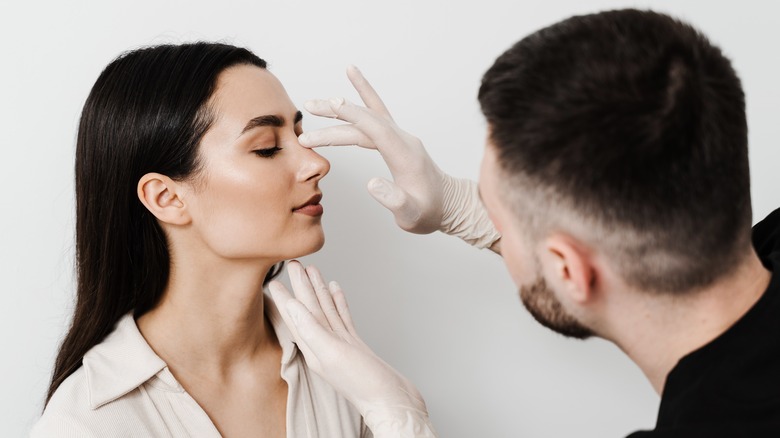The Weird Way Your Nose Can Predict Your Future Health
Your senses are your connection to the outside world. Your sense of touch allows you to experience intimacy with a mate and remove your finger from a hot stove. Your eyes allow you to savor the perfect sunset and they protect you from being hit by a bus. Your ears not only take in some of the best music but also alert you when it's time to wake up in the morning. Your sense of taste encourages you to take in food and hydration to keep you properly nourished. Your sense of smell can stimulate your appetite to get you to eat or it can warn you of potential danger. Certain smells can also remind you of home or a particular loved one.
For your sense of smell to do its job, cells need continual renewal in the lining of your nose, your olfactory bulb in your brain and nasal cavity, and your hippocampus. The process of cellular renewal can degenerate with age. When someone loses their sense of smell as they age, it can be a bellwether of neurodegenerative disease or cognitive decline. It's not that losing your sense of smell causes you to die earlier, but it could indicate that the body is slowing its cellular generation processes.
Losing sense of smell can predict early death risk
In a 2014 article in PLOS ONE, more than 3,000 adults aged 57 to 85 were measured for their olfactory function (their sense of smell). They were asked to correctly identify the scents of rose, leather, orange, fish, and peppermint. Those who could identify one or none of the smells were considered to be anosmic, which means their sense of smell had lost its normal function. If they could identify all the scents, they were considered normosmic. The researchers followed up with the participants five years later to check on their health status or whether they had died.
Among the normosmic people, just 10% died after five years compared to the 39% of anosmics who died. Those who had lost their sense of smell were five times more likely to die within the five-year time frame than those with normal olfactory function. After controlling for overall health, level of frailty, and demographics, those who had lost their sense of smell had three times the risk of death than those with a normal sense of smell. This mortality risk was higher than heart disease, diabetes, and stroke.
You can temporarily lose your sense of smell
However, you could lose your sense of smell for other reasons. Your smell receptors are deep inside your nose, and they could become damaged by a blow to your head, nasal surgery, or extensive pollutants in your environment. Diabetes, smoking, and obesity could also affect your smell receptors. Even medications can alter your sense of smell. You might notice losing your sense of smell when you have a cold, sinus infection, or allergies (per Harvard Medical School). In the early months of COVID-19, people knew they had the virus because they lost their sense of smell.
While some of this loss of smell can be temporary, you'll want to get your nose checked out if it persists for a few weeks. Losing your sense of smell can be dangerous because you might accidentally eat spoiled food or breathe in toxic chemicals in the air. Your doctor might conduct several tests including examining the inside of your nasal cavity. Nasal surgery might be required if there are tumors or polyps in your nose. Your doctor might also order a brain imaging scan to rule out the possibility of a neurodegenerative disease.



